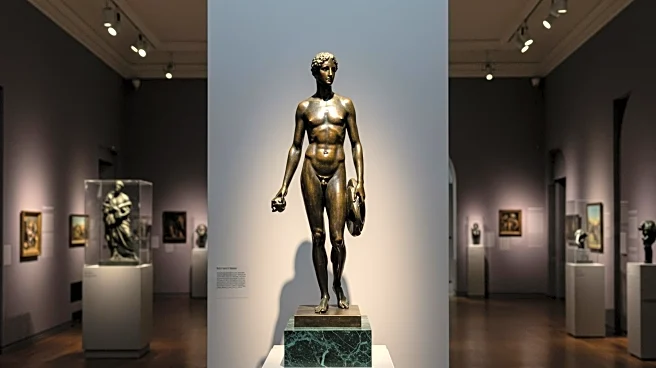What's Happening?
President Trump has announced plans to review U.S. museums, starting with the Smithsonian Institution, to address what he perceives as 'woke' narratives. The administration has already begun an audit of the Smithsonian, with intentions to extend this review to other museums across the country. The initiative aims to align museum exhibitions with the administration's vision, focusing on representations of American history and identity. Critics argue that this move could threaten the independence and integrity of museums, which are largely nonprofit entities guided by professional standards and community trust.
Why It's Important?
The review of museums by the Trump administration could have significant implications for cultural institutions in the U.S. Museums play a crucial role in preserving history and fostering public education. The potential government oversight raises concerns about censorship and the politicization of historical narratives. This initiative could impact funding and influence how museums curate their exhibitions, potentially altering public access to diverse perspectives on history and culture. The move has sparked debate among museum professionals and civil rights advocates about the balance between government influence and artistic freedom.
What's Next?
The administration's review process is expected to expand beyond the Smithsonian, potentially affecting thousands of museums nationwide. The timeline and criteria for these reviews remain unclear, as does the extent of legal and financial pressures that might be applied. Museum leaders and advocacy groups are likely to continue voicing opposition, emphasizing the importance of maintaining creative and scholarly independence. The outcome of this initiative could set a precedent for future government interactions with cultural institutions, influencing how history and identity are presented to the public.
Beyond the Headlines
The broader implications of this initiative touch on issues of free speech and government funding. Museums, as educational entities, have traditionally operated with a degree of independence from political influence. The administration's actions could challenge this norm, raising questions about the role of government in shaping cultural narratives. Additionally, the focus on 'woke' narratives highlights ongoing cultural and political debates about representation and inclusivity in public spaces. This development may also affect donor relationships and funding strategies for museums, as they navigate potential shifts in public policy.











